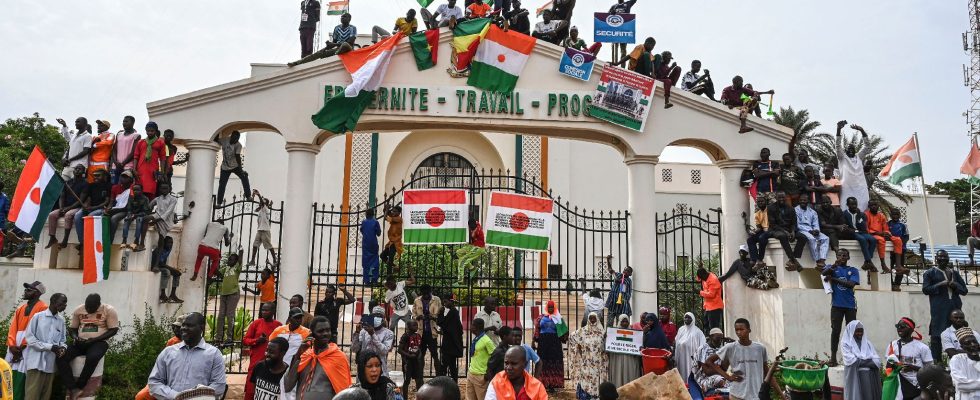The military in power in Niger announced that they had “instructed the police services” in order to proceed with the “expulsion” of the French ambassador to Niamey, in a letter addressed to Paris consulted, Thursday, August 31, by AFP , after the expiration of an ultimatum to the French diplomat to leave the country. According to this letter from the Ministry of Foreign Affairs dated Tuesday, Ambassador Sylvain Itté “no longer enjoys the privileges and immunities attached to his status as a member of the diplomatic staff of the French Embassy”.
His “diplomatic cards and visas” as well as those of his family members “are cancelled”, the letter states, adding that the Nigerien police services “have been instructed to proceed with the expulsion” of Sylvain Itté. Friday evening, the military in power had given 48 hours to the French diplomat to leave the territory, which Paris refused, arguing that this government was illegitimate and had no authority to base such a request. At the end of this period, Sylvain Itté, whose work Emmanuel Macron praised on Tuesday, was still in post in Niamey.
On Thursday, the spokesman for the French general staff, Colonel Pierre Gaudillière, warned that “French military forces are ready to respond to any renewed tension that would undermine French military and diplomatic influence in Niger” and that “measures have been taken to protect these rights of way”. On Monday, Emmanuel Macron had fiercely defended Paris’ intransigence vis-à-vis the soldiers who came to power by force in Niger: “If France had not intervened, if our soldiers had not fallen on the field of honor in Africa, if (the military operations) Serval then Barkhane had not been decided, we would not be talking today about Mali, Burkina Faso or Niger.”
EU support
In the process, the European Union had expressed its “full support” for the French ambassador to Niger, still in office while the soldiers who took power in this country asked for his departure. “The decision of the putschists to expel the French ambassador is a new provocation which cannot in any way help to find a diplomatic solution to the current crisis”, declared the spokeswoman of the EU diplomatic service, Nabila Massrali, in a press release.
The following day, the United Nations had indicated that the political crisis in Niger and the sanctions imposed following the coup d’etat risk having “catastrophic” humanitarian effects. The UN High Commissioner for Refugees (UNHCR) has been revising its contingency planning for Niger since the military seized power on July 26 to overthrow President Mohamed Bazoum.
For more than a month, General Abdourahamane Tiani has been in power in Niger. The Economic Community of West African States (ECOWAS) has repeatedly threatened to intervene militarily to restore constitutional order. But some neighbors remain in solidarity with Niger’s military power. On Thursday, the Burkinabè government approved a bill authorizing the sending of a military contingent to Niger. The methods of sending this contingent were not specified, the government indicating that they were fixed “by mutual agreement”, between the authorities of the two countries.
Last week, General Abdourahamane Tiani signed a decree authorizing the armed forces of Burkina Faso and Mali to intervene on Nigerien soil “in the event of external armed aggression or destabilization”. Burkina and Mali, faced like Niger with recurrent jihadist violence, are also led by soldiers who took power by force between 2020 and 2022.
